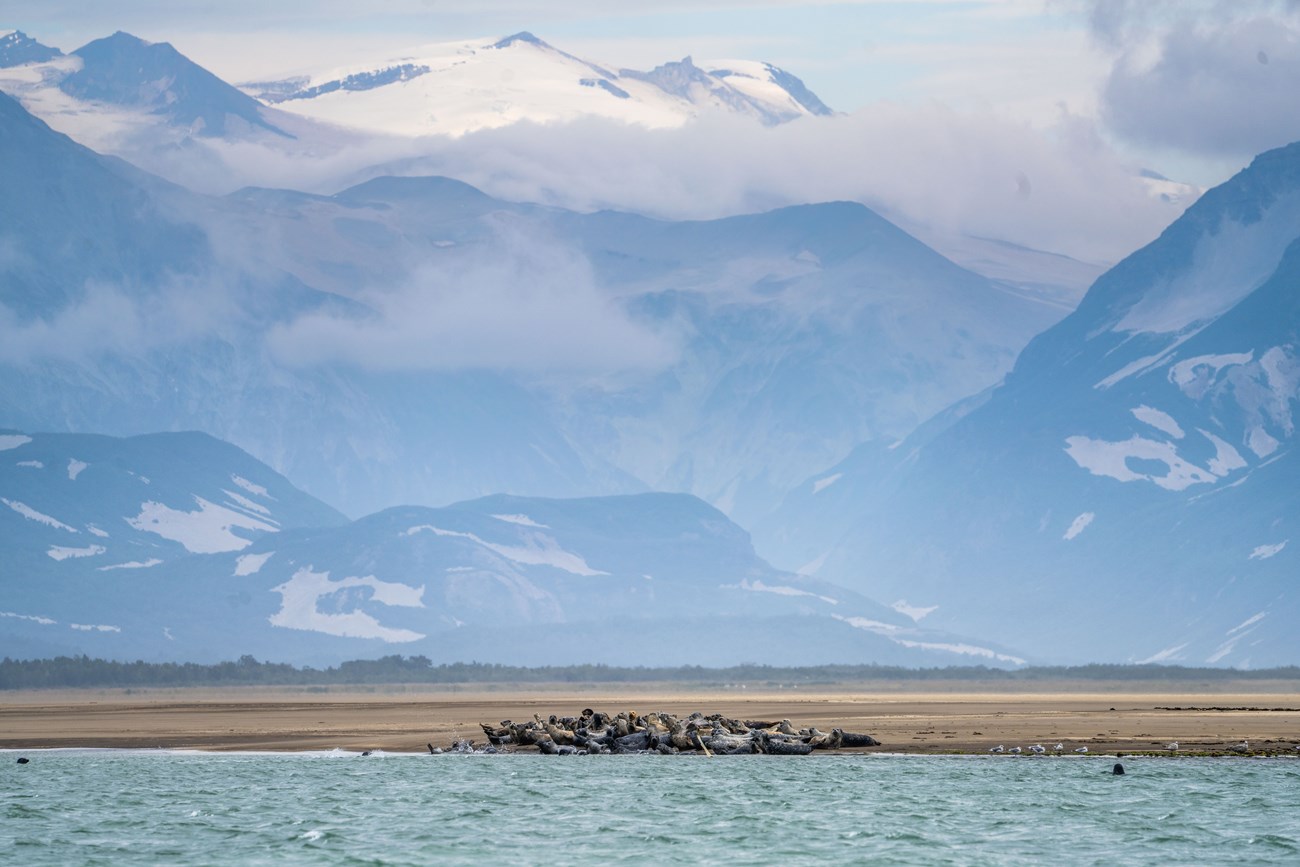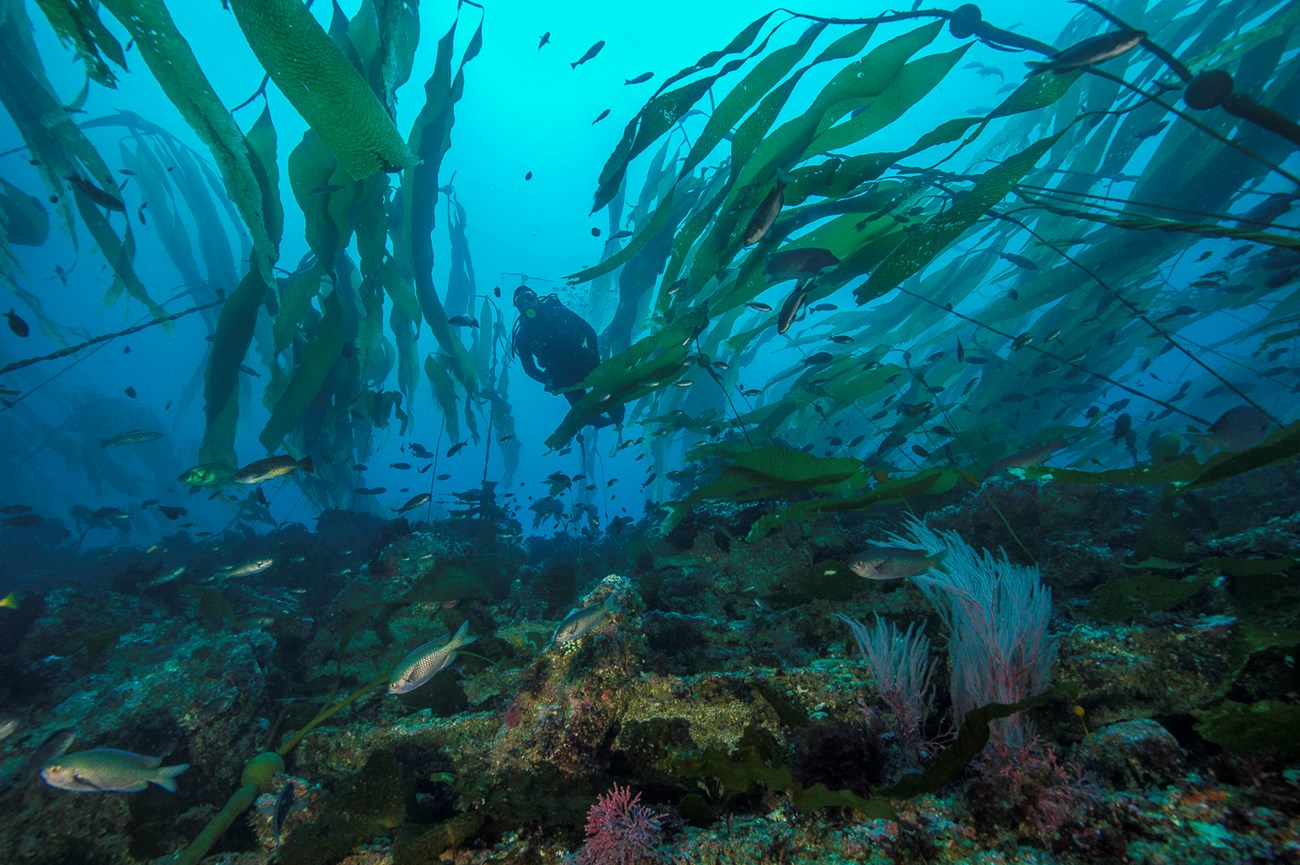Last updated: February 23, 2024
Article
Ocean Literacy Principles

NPS/Lian Law
Ocean literacy is an understanding of the ocean’s critical role in shaping and supporting life on earth. It is also a recognition of human reliance, as well as our impacts, on the ocean, and the importance of protecting it.
The Ocean Literacy Principles were developed by the Ocean Literacy Network, a team of individuals and organizations including NOAA and the National Marine Educators Association. The National Park Service and the Ocean Alaska Science and Learning Center (OASLC) promote these principles through education, communications and the funding of marine science research in Alaska’s coastal national parks.
For more details on the Ocean Literacy Principles, visit: Ocean Literacy — National Marine Educators Association (marine-ed.org)

NPS/Brett Seymour
Principle 1
The earth has one big ocean with many features. While many consider the earth to have five oceans, in fact, they are all one – the world ocean. This far-reaching body of water contains multiple basins, each named for its geographic location - the Atlantic, Pacifc, Arctic, Indian, and Antarctic. The world ocean is governed by one circulation system, powered by wind, tides, the earth’s rotation, the sun, and water density diferences.
Principle 2
The ocean and life in the ocean shape the features of the earth. Sea level changes, coastal erosion, and sand distribution shape our landscapes. Additionally, many earth materials and geochemical cycles, such as coral reefs, converging tectonic plates, and volcanic activity, originate in the ocean.
Principle 3
The ocean is a major influence on weather and climate. The interaction of oceanic and atmospheric processes controls weather and climate by dominating the earth’s energy, water, and carbon systems. The ocean moderates global weather and climate by absorbing most of the solar radiation reaching the earth. Heat exchange between the ocean and atmosphere drives the water cycle and oceanic and atmospheric circulation.

NPS
Principle 4
The ocean makes the earth habitable. The ocean makes life on Earth possible, providing water, oxygen, and nutrients, and moderating the climate. Most of the oxygen in the atmosphere originally came from the activities of photosynthetic organisms in the ocean.
Principle 5
The ocean supports a great diversity of life and ecosystems. Ocean life ranges in size from the smallest living things - microbes - to the largest animal that has lived on Earth - the blue whale. The ocean contains the greatest diversity of organisms on earth. In fact, most of the major groups of organisms on the planet are found exclusively in the sea.
Principle 6
The ocean and humans are inextricably connected. The ocean affects every human life by supplying freshwater (most rain comes from the ocean) and oxygen, as well as foods, medicines, and mineral and energy resources. It supports millions of jobs and national economies and serves as a transportation highway. As a source of inspiration, recreation, and discovery, the ocean offers untold intangible benefits and is integral to many of the world’s cultures. The ocean sustains life on Earth, yet we are just beginning to understand the importance of living in ways that sustain the ocean.
Principle 7
The ocean is largely unexplored. Despite the ocean’s critical role in our lives, it remains largely a mystery. In fact, humankind has explored less than 5% of this vast submerged realm. With a rapidly warming climate and increasingly dominant human footprint, it is critical to explore and understand this driving force for life on earth.
For more information about the OASLC, Ocean Literacy Principles, and efforts to increase ocean literacy, please contact Our Staff.
